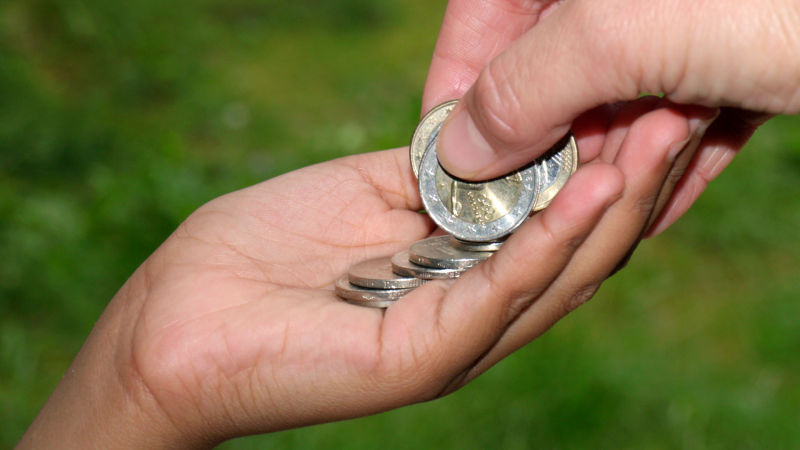"The thing that I like about the three jars, about the save jar, the spend jar, and the give jar, is that they kind of mirror and mimic the foundational basics of grown-up budgeting. If we have a relatively healthy financial life ourselves as grownups, we're spending maybe 80 percent of what we take in and hopefully we're saving 10 percent or 15 percent if we can, maybe a little bit more if we've got a couple kids coming up on college, and then we give some away, too. Maybe its 2.5 percent, for the average American, or maybe 10 percent if we're Mormon, or maybe 50 percent if you're an entrepreneur or wealthy person and you've signed the giving pledge to give away 50 percent of your net worth before you die. Whatever it is, hopefully you've got a little bit left over.
"So the three jars? Those mirror what grownups do, and you can say to your kids you've got to give away 10 percent of what we give to you in allowance or you've gotta give away a third of it. Wherever you stand, you can sort of make those same rules for your children as they begin to collect some allowance money from you."
On Separating Allowance from Chores
"I think allowance is a tool for learning. And I think money is for practice. It's like art supplies or books or musical instruments — other things that you want your kids to get good at because it's just good for their brains, good for their training. In the adult-making business here, these are the things that we do and provide if we possibly can afford them. We consider them needs, not wants, and I think of allowance the same way.
"Parents worry about the chore side of this, and I actually think kids should do way more chores than they currently do. [Kids] are capable of way more than we think they are, but they should do them for free. Because they are members of the household, just like the grownups, and the grownups do not get compensated for their chores. And if you're worried about leverage, about making sure that the kids actually do their chores, I think taking away their valued privileges is a much better way to go if you want to exact leverage or punishment."
On Talking to Kids About Debt
“What we can say is that we do not actually know why the neighbors have a much nicer car than we do, even though we live in roughly the same size house. We do not know why they are able to take such nice vacations. It might be because they inherited a bunch of money from a relative. It might be because they won the lottery and just haven’t told anybody. And it might be because they’re borrowing a lot, but we can’t know that for sure, and so I’m not sure we want to kind of cast dispersions or doubts on other people and where their money is from unless we know for certain how they got it. But I certainly think kids should know that just because a family is spending more than yours it doesn’t necessarily mean that they’re richer, but that we can’t really know for sure.”
